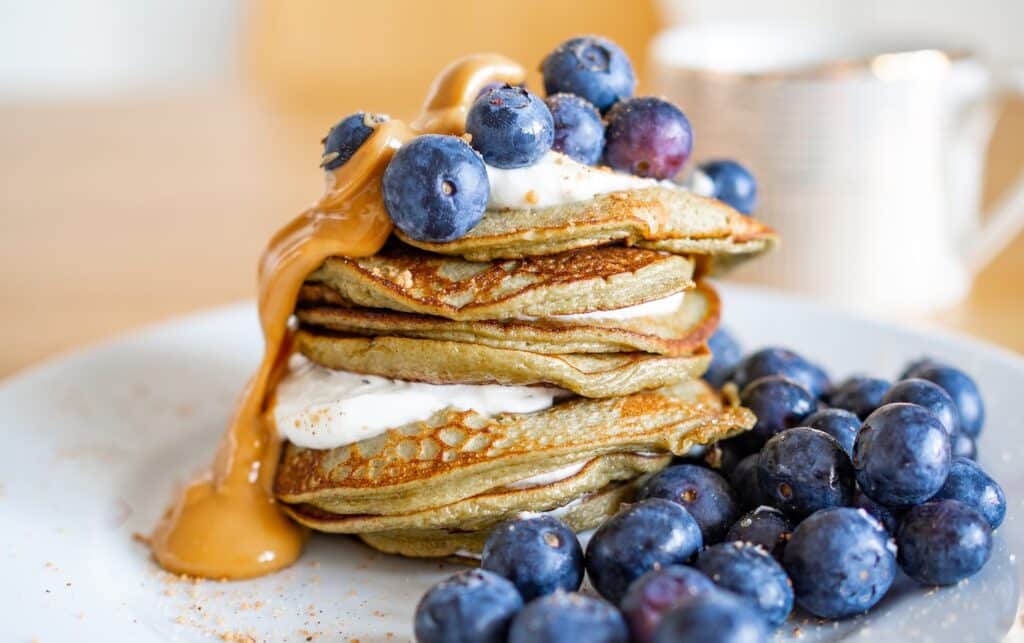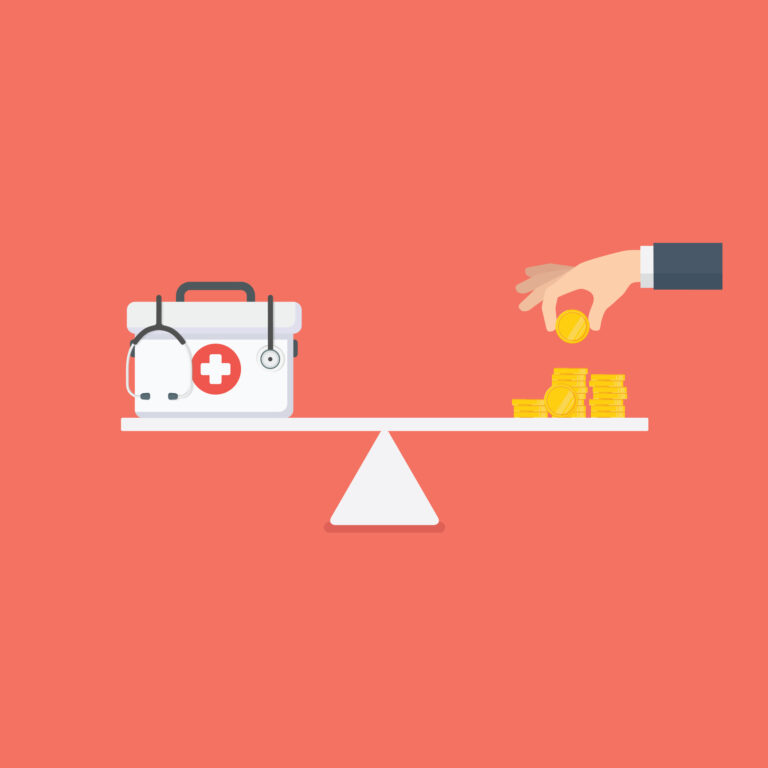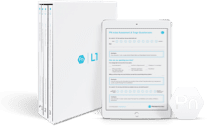If you typically start your day with a grab-and-go breakfast like a donut or a sweet coffee drink, you’re probably familiar with the late-morning sugar crash. You know the feeling: Your energy levels seem to plummet, leaving you feeling hungry, irritable, and shaky. You might even crave more sugar to refuel.
Skip this sugar roller coaster by opting for a low sugar breakfast. Starting the day with the healthiest breakfast options can stabilize your blood sugar levels, reduce the urge to snack, and help you reach your weight loss goals.
How Many Grams of Sugar a Day Is Right for You?
There isn’t a hard and fast rule about how much sugar people should consume. It varies based on your diet and your health needs.
The Dietary Guidelines for Americans 2020-2025 recommend no more than 10% of your daily calories come from added sugar. That means if you eat 2,000 calories per day, you should aim for no more than 200 calories of added sugar.
What are the different types of sugar?
Food and drinks can contain two different kinds of sugar:
- Natural sugars are found in many foods, such as fruits, vegetables, and dairy products. These are healthy sugars because the foods they come from also contain essential nutrients like vitamins and fiber. Unless instructed by a doctor or healthcare professional, you generally don’t need to avoid natural sugars.
- Added sugars are what you want to be on the lookout for on nutritional labels. Try to eat these in moderation. Looking at a nutrition label, you’ll see a number for total sugar and one for added sugar. For example, a serving of grape jelly might have 10 grams of total sugar, including nine grams of added sugar. The remaining gram is likely from sugar that was naturally in the grapes.
Recommended sugar consumption numbers generally refer to added sugars. Eating an apple with 19 grams of naturally occurring sugar does not count toward your daily limit of added sugars, so go ahead and take advantage of all the health benefits of fruits and veggies.
NOTE: Your ideal daily grams of sugar may differ from the FDA recommendation. You may be controlling your sugar intake for reasons related to an underlying health condition. You should follow any dietary instructions your doctor has given you about what you should eat for optimal blood sugar control.
How much sugar is in a gram?
If you’re wondering, “What does a gram of sugar look like?” imagine the teaspoon of sugar you might add to a cup of coffee. Well, that’s about 4 grams of sugar. So, if you were to divide that teaspoon into four equal parts, each part would be around 1 gram of sugar.
Now, when it comes to how much sugar you should have in a day, for a 2,000-calorie diet, it’s recommended to keep it around 50 grams. So, it’s like having about 12 to 13 teaspoons of sugar throughout your day.

Top 4 Low Sugar Breakfast Ideas You Need To Try
You don’t have to miss out on flavor even when cutting back on added sugar. You can start your day with a healthy, low sugar breakfast packed with flavor. We rounded up a few of our favorite low sugar breakfast options. Each of these recipes has less than 10 grams of added sugar.
1. Eggs and avocado toast
Avocado toast is popular for a reason. Featuring creamy avocado slices, black beans, and whole wheat bread, this low sugar breakfast offers 10 grams of fiber. Poached eggs add protein to this healthy breakfast recipe.
- Calories: 374
- Sugar: 4 grams (1 gram added sugar)
- Fat: 12 grams
- Carbs: 34 grams
- Protein: 21.5 grams
- Fiber: 10 grams
Ingredients:
- 1 slice of whole-wheat bread
- ¼ avocado, sliced or smashed
- ¼ cup black beans
- 1 tablespoon salsa
- 2 eggs, poached
2. Oatmeal with blackberries
Oatmeal is a great breakfast food. It’s naturally low in sugar but high in fiber. You can dress it up with fruit to add some sweetness. Adding walnuts gives you eight grams of protein for a hearty and healthy breakfast.
- Calories: 303
- Sugar: 10 grams (4 grams added sugar)
- Fat: 13 grams
- Carbs: 44 grams
- Protein: 8 grams
- Fiber: 9 grams
Ingredients:
- ½ cup rolled oats
- ½ cup water
- 1 teaspoon brown sugar
- ½ cup blackberries
- 2 tablespoons walnuts
3. Grilled veggie sausages
The rising popularity of plant-based meat substitutes means there are plenty of amazing veggie breakfast options. When you need a quick breakfast that provides all-day energy, you can quickly grill up a couple of veggie sausage links. Add a slice of toast, strawberries, and greek yogurt for a divine breakfast with virtually no prep!
- Calories: 220
- Sugar: 5 grams (1 gram added sugar)
- Fat: 9 grams
- Carbs: 18 grams
- Protein: 16 grams
- Fiber: 3 grams
Ingredients:
- 2 sausages
- 1 slice whole grain toast
- 1/2 cup strawberries
- ½ cup plain low-fat Greek-style yogurt
4. Smoothie bowls
Smoothies are a creative, low sugar breakfast choice. A berry peanut butter bowl is a twist on the usual smoothie. Instead of blending all the ingredients, hold back half of the raspberries. After blending, add them to the rest of the ingredients for a breakfast that combines the freshness of a smoothie with the taste and texture of whole, fresh fruit.
- Calories: 285
- Sugar: 15 grams (6 grams added sugar)
- Fat: 14 grams
- Carbs: 35 grams
- Protein: 11 grams
- Fiber: 15 grams
Ingredients:
- 6 ounces (about 1 1/2 cups) fresh or frozen raspberries
- 1/4 cup low-fat Greek yogurt
- 1 ½ teaspoons smooth, natural peanut butter
- 1 tablespoon chia seeds
- 1 cup ice cubes
- 1 teaspoon honey
Fun fact: MyFitnessPal has one of the largest food databases, with over 19 million foods. Jumpstart your day by tracking your breakfast on the app!
The Bottom Line: Keep Sugar Levels Stable With These Morning Meal Options
Keeping your sugar intake at the recommended level can help avoid sugar spikes. Choosing low sugar breakfast foods enables you to manage your blood sugar levels and achieve weight loss goals.
The Recipe Discovery tool in the MyFitnessPal app has more ideas for healthy breakfasts and low sugar meals and snacks. You can find new recipes, and Premium subscribers can save favorite recipes to come back to again!






